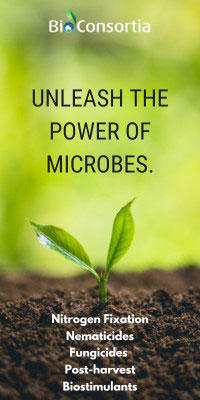The United Nations food agency is working to strengthen a global food security committee following last week’s World Food Summit in Rome, but key observers deplored the lack of firm commitments at the gathering, while industry welcomed the mention of biotechnology in the summit declaration.
The UN Food and Agriculture Organization agreed on 22 November to strengthen the Committee on World Food Security (CFS) during their conference, hoping to establish a stronger system of global food security governance. But some groups have voiced concern about funding and accountability of the committee.
This follows a strategic objective of the 16-18 November World Summit on Food security, which adopted a declaration that included the statement that the CFS should be a major component of a UN-wide global partnership for agriculture, food security and nutrition, a project initiated at a 26-27 January 2009 meeting in Madrid.
The renewed CFS will include not only FAO and UN member states but also representatives of other international organisations, non-governmental organisations, private sector and civil society.
The Rome declaration [pdf] adopted during the summit pledged efforts from members to meet the targets of the Millennium Development Goals by 2015 and set strategic objectives but activists denounced the absence of most of the head of states of the Group of 8 industrialised countries and the absence of concrete measures taken to tackle hunger.
Although the summit produced commitments, FAO Director-General Jacques Diouf regretted that the declaration contained “neither measurable targets nor specific deadlines which would have made it easier to monitor implementation,” according to a UN press release.
Strategic objectives were set in the declaration, such as the reversion of the decline in domestic and international funding for agriculture, food security and rural development in developing countries, the promotion of new investments to increase sustainable agriculture production and productivity.
According to the UN Special Rapporteur on the right to food, Olivier De Schutter, although the declaration may indicate a “promising era of global cooperation in achieving food security,” and emphasises the need for accountability at national and international levels, it is weak on issues such as the production and use of agrofuels, or speculation by commodity index funds.
“The food economy today is characterised by the global supply chains and the importance of added-value production led by private corporations, who set the prices and link the producers to the consumers, without any sort of control and with often extremely high levels of concentration that represent a serious market failure,” he said.
A parallel forum including over 600 people representing 450 organisations of peasant and family farmers, small scale fishermen, pastoralists, indigenous people and others was organised in Rome from 13-17 November. The Parallel Forum of Civil Society declared support for the renewed CFS but were concerned that the committee is lacking funding to achieve its programme. They also stated their refusal of “intellectual property rights over living resources including seeds, plants and animals.”
Industry Welcomes Declaration Mention of Biotechnologies
Paragraph 26 of the declaration recognised that the increase of agricultural productivity is key to meeting food demand and resources needed to increase productivity will have to be mobilised including “the review, approval and adoption of biotechnology and other new technologies and innovations that are safe, effective, and environmentally sustainable.”
“We are obviously pleased to see a mention of biotechnology in the declaration,” Denise Dewar, executive director for plant biotechnology at Croplife, a global federation representing the plant science industry, told Intellectual Property Watch.
The mention of the biotechnologies and innovations in the declaration is an encouragement for FAO members to use those technologies, she said, adding that the industry participation in the CFS is “a step in the right direction” to solve issues relating to climate change and food security.
The declaration also proposed to “address the challenges and opportunities posed by biofuels, in view of the world’s food security, energy and sustainable development needs.” Croplife believes that with technology and proper crop management, food and fuels can be done “although food is the number one priority,” said Dewar.
Although “very pleased” by the recognition of the use of biotechnologies to increase productivity in the declaration, that goal will be achieved only if “the committed resources are sustained, if research receives committed and coordinated government support, and farmers are effectively trained and supported in their adaptation needs,” Dewar said.
On 1-4 March 2010 in Guadalajara, Mexico, the FAO will hold an international technical conference co-organised with the government of Mexico, on agricultural biotechnologies in developing countries. The event is co-sponsored by the International Fund for Agricultural Development. Major partners are: The Consultative Group on International Agricultural Research, the World Bank and the International Centre for Genetic Engineering and Biotechnology.





















